50 Amazing Health Facts That Will Improve Your Health
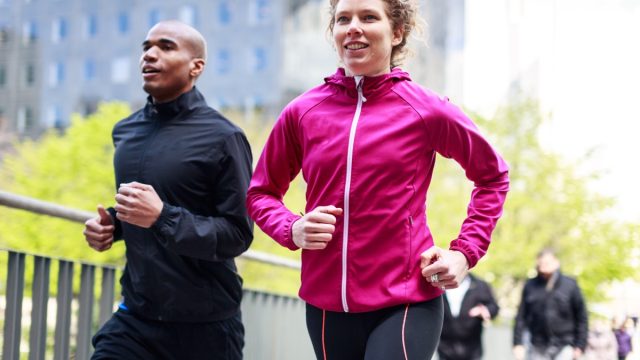
When it comes to your health, there are a few basic facts you already know: Drink more water! Get more sleep! Eat right! Exercise! But it turns out, there’s way more to it than just that—and we’re willing to bet you’ve left more than a few stones unturned.
For instance, did you know that just 10 minutes of exercise a day can be just as effective as a longer workout? Or that eating certain foods can boost your mood? To help you master your health and fitness, we’ve rounded up the most incredible (and practical!) facts that will change the way you live.
1
Laughter is good for your heart.

It’s well known that laughter can be a valuable coping tool for those suffering from medical conditions. But according to one 2016 study published in The Journal of Epidemiology, it could also directly contribute to a healthier heart. Among male and female study subjects over the age of 65, those who reported laughing daily had drastically lower rates of cardiovascular disease and stroke.
2
Quitting smoking before 35 could save your life.
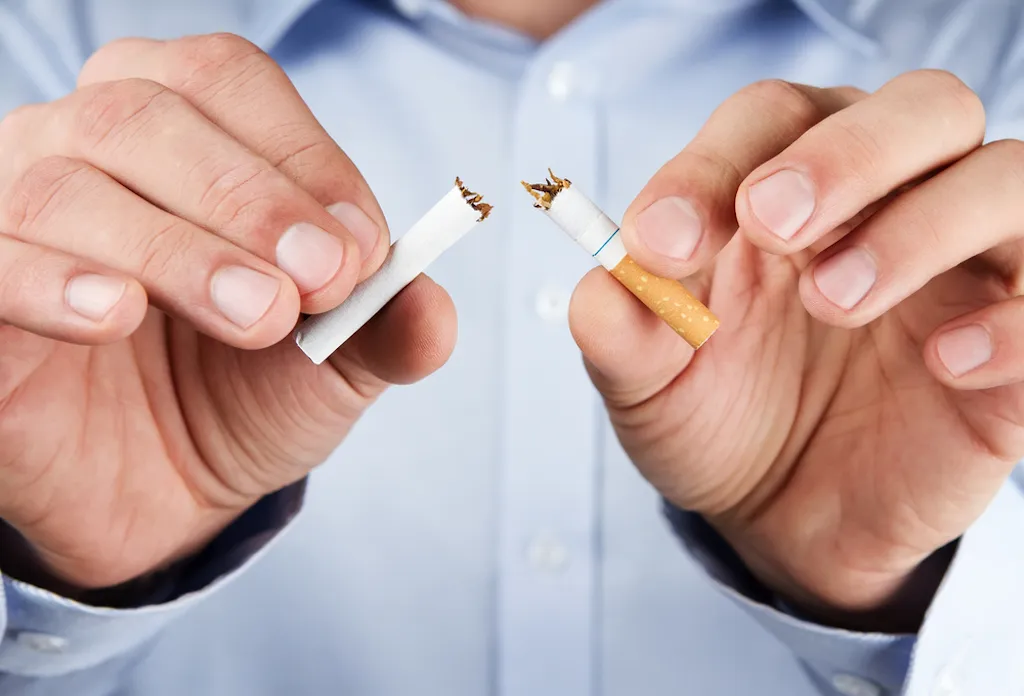
If you’re a smoker, but not yet middle age, let this be your wakeup call: A 2002 report from the American Journal of Public Health suggests that roughly 90 percent of the increased mortality risk associated with smoking cigarettes can be stopped if a smoker quits before the age of 35. Past middle age and still hooked? You can still reap the benefits of increased longevity by quitting today.
3
Not working out is as bad as smoking.
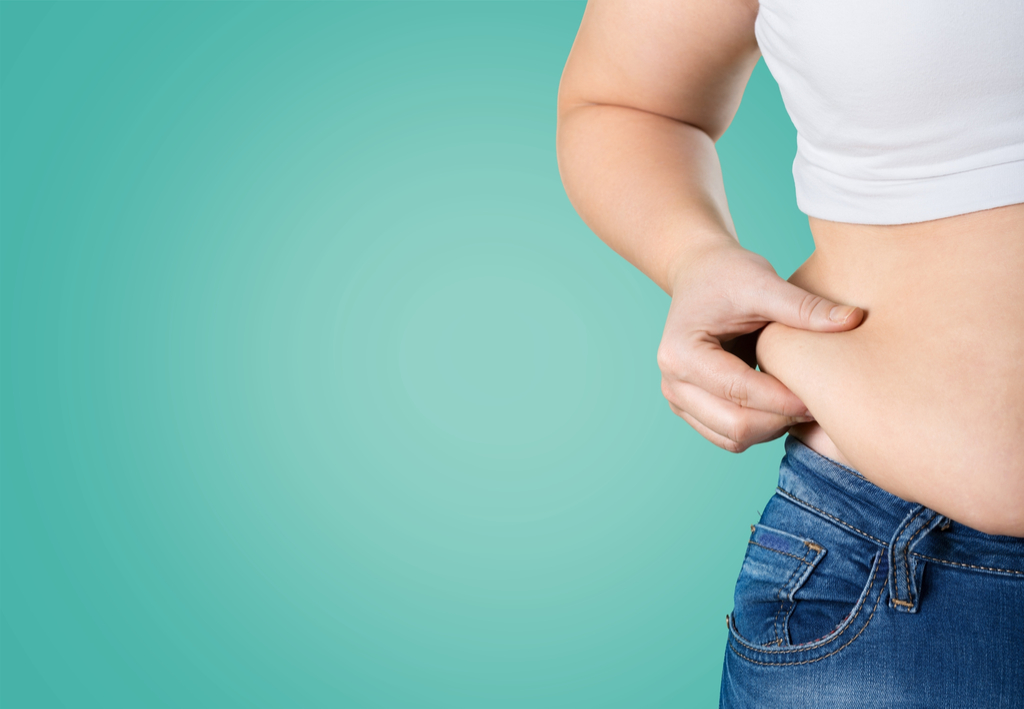
We all know that staying active is key to a healthy lifestyle, but recent studies have shown just how important it is. “When compared with the lowest [athletic] performers, elite performance was associated with an 80 percent reduction in mortality risk,” reads a 2018 study published in the journal JAMA Network Open. “In addition, the adjusted mortality risk of reduced performance was comparable to, if not significantly greater than, traditional clinical risk factors, such as coronary artery disease, diabetes, and smoking.”
4
And obesity may soon overtake smoking as the leading cause of cancer.
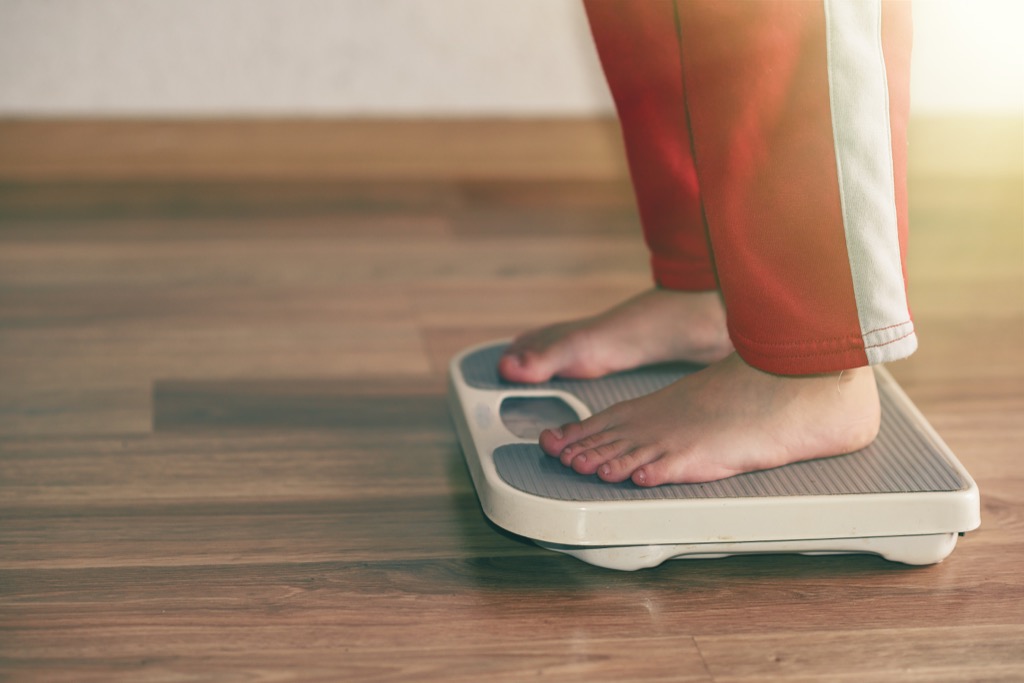
A British report from Cancer Research UK concluded that as smoking rates drop and obesity rates rise, being severely overweight is poised to become the leading cause of cancer by the year 2043. Considering projections that half of all adults in the United States will be obese by the year 2030, we are likely to see similar trends.
5
Sugar is as bad for you as cigarettes.

We all know smoking is one of the worst things you can do for your health, but a more stealth killer may be having the same level of impact: sugar. Just as cigarettes have long been linked to preventable mortality from cancer, heart disease, and stroke, researchers have increasingly found that consuming added sugar leads to similarly deadly conditions.
According to a 2016 report in the journal Nutrients, too much sugar leads to “a variety of chronic diseases including obesity, cardiovascular disease, diabetes and non-alcoholic fatty liver disease (NAFLD) as well as cognitive decline and even some cancers.”
6
And you may be eating 46 hidden teaspoons of sugar a day.
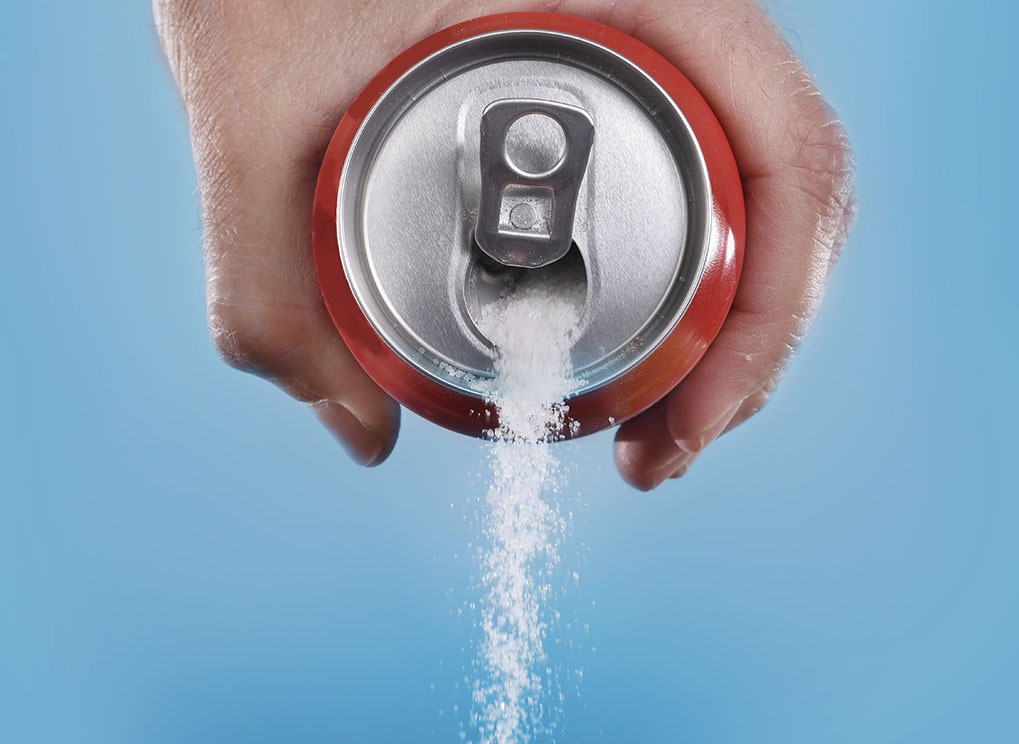
Though it is recommended by the American Heart Association that women eat no more than six tablespoons of sugar and men eat no more than eight per day, a 2010 article in the Journal of the American Medical Association found that Americans take in an average of 46 hidden teaspoons of sugar per day. These hidden sugars lurk everywhere from drinks to tomato sauce, to dried fruits.
7
We eat 600 more calories a day than people did in the 1970s.
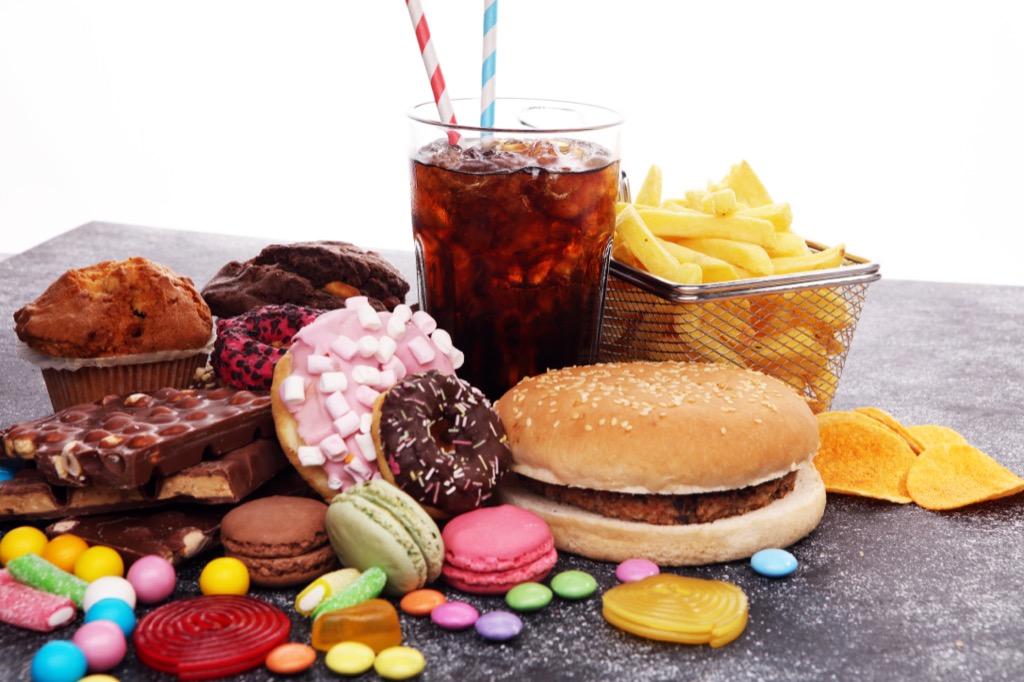
When we look back on the portraits of past generations, it’s clear that Americans have, on average, gotten bigger. While this is likely due in part to the rise of fast food, hormones in meat and dairy products, chemical additives and preservatives, and the streamlining of physical labor, it also comes down to a staggering increase in the number of calories consumed. According to the U.S. Department of Health and Human Services, the average daily calories consumed has increased by approximately 600 calories since the 1970s.
8
Optimism can make you live longer.

A good attitude may do more than just brighten your day. According to Harvard Health, a series of studies confirmed that being a “glass-half-full” kind of person is associated with increased longevity. One 1999 study published in JAMA Internal Medicine revealed that optimistic patients who had undergone coronary artery bypass were half as likely to require re-hospitalization within the following six months as pessimistic patients.
9
Sitting up too straight can hurt your back.

“Your mom wasn’t totally wrong; hunching can certainly be bad for your back,” says Dr. Neel Anand, professor of orthopedic surgery and director of spine trauma at Cedars-Sinai Spine Center in Los Angeles, California. “But the opposite is true too. Sitting up straight for too long without a break can also cause strain. If you work in an office setting, make sure your chair is at a height where your knees are at a 90 degree angle, your feet can rest flat on the floor, and you have proper lower back support. Make sure to stand up, stretch, and take a quick walk several times a day to keep from getting stiff or causing injury.”
10
Just 10 minutes of daily exercise can save your health.
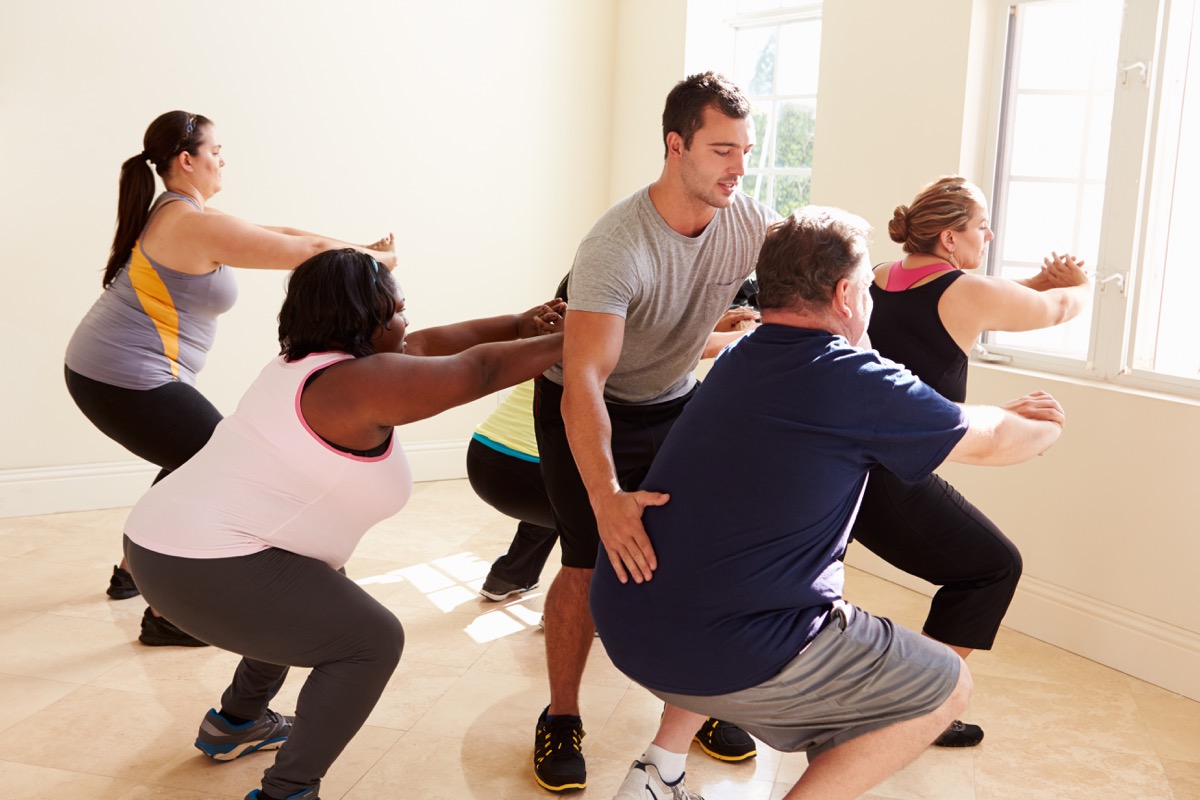
If you don’t think you have time to work out, think again: A 2011 study in the Journal of Obesity found that high-intensity interval workouts that last as few as 10 minutes can be effective in reducing fat, lowering insulin resistance, and improving overall health. While more traditional workout durations of 30 to 60 minutes may build on those benefits, the new rule of thumb is that short bouts of vigorous exercise every day can be just as effective as longer workouts.
11
Walking is nearly as healthy as running.
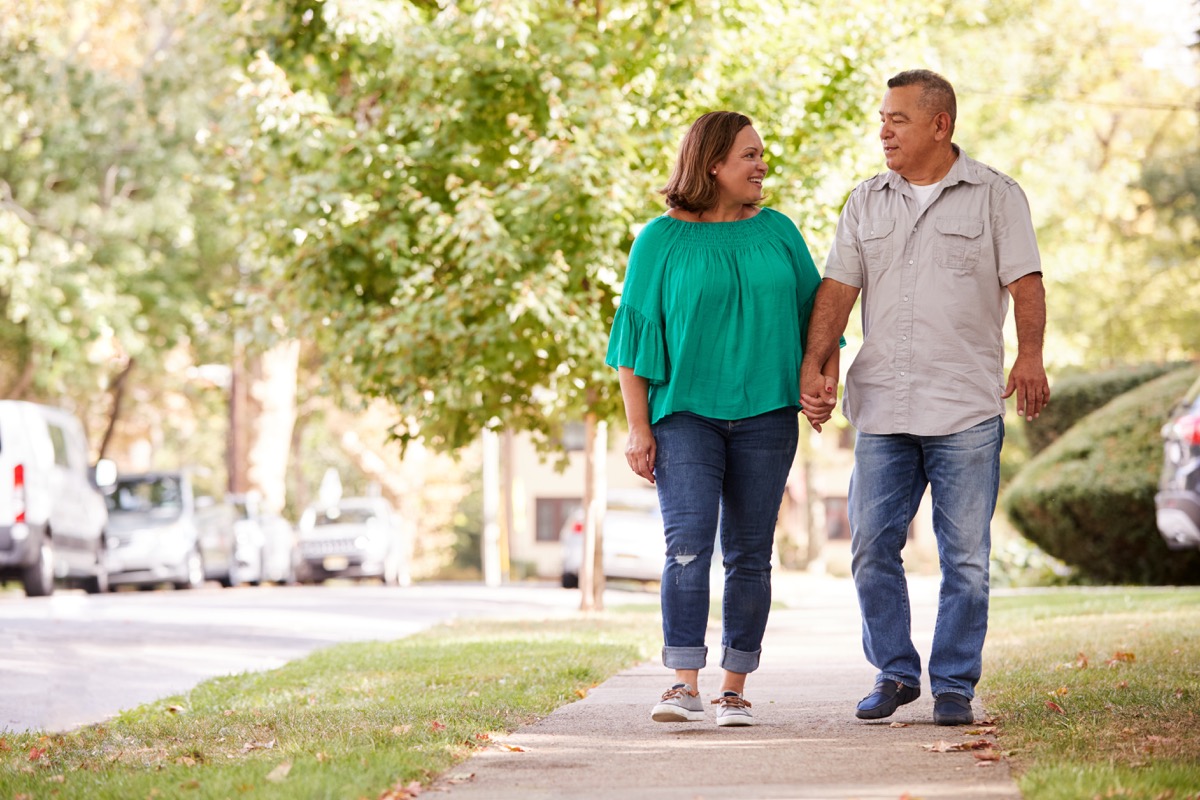
On the other hand, if you’ve got a lot of time to spend on a leisurely workout, try walking. One 2014 study published in the journal Arteriosclerosis, Thrombosis, and Vascular Biology found that brisk walking can be nearly as effective as running in lowering rates of hypertension, diabetes, and high cholesterol. The key is to maintain a pace that keeps your heart rate elevated and to cover the same distance as your running route—which, admittedly, could take a while.
12
Actually, running can cause permanent health problems.

Running is great for your overall health, but your joints and back may beg to differ. “Whether it’s concrete or paved asphalt, running on hard ground is incredibly hard on your joints and spine,” explains Anand.
So what can you do about it? The orthopedic surgeon suggests varying your workout, and running on dirt trails or grass when possible. “You’ll also benefit from getting stronger legs, as the softer ground gives more and requires more energy, strength, and effort to push forward on,” he adds.
13
Exercise can improve your chronic pain.
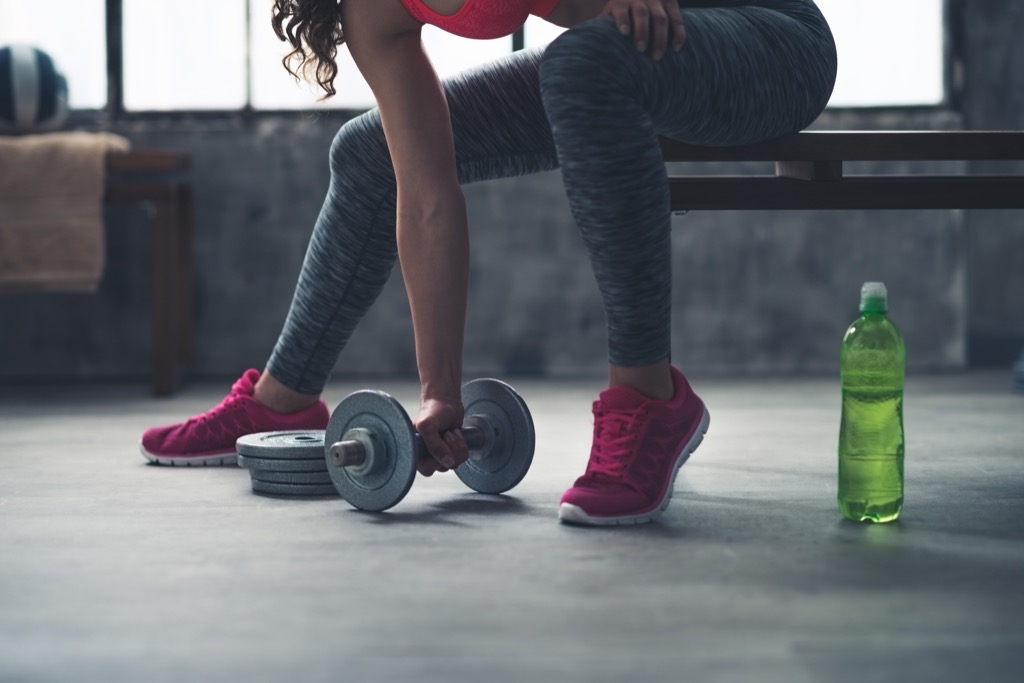
If you suffer from chronic pain, working out is probably the last thing you want to do. But a 2017 report in the Cochrane Database of Systematic Reviews examined 264 studies with nearly 20,000 participants, and found that overall, exercise was beneficial for chronic pain. In particular, the review suggested that exercise could lower pain severity and improve function, particularly when exercise plans were monitored by a physician.
14
And it can also reduce your risk for Alzheimer’s.

If you’re relying on the Sunday crossword alone to keep your mind sharp as you age, you’re missing a huge piece of the puzzle. A growing body of research has revealed that physical exercise can have a huge impact on vitality and resistance to neurological disorders.
According to a 2013 study in the journal Comprehensive Physiology, “abundant evidence supports the role of exercise enhancing cognitive function in young subjects and reducing cognitive decay in aging. … Exercise has the potential to reduce the risk for various neurological diseases including Alzheimer’s, Huntington’s, and Parkinson’s.” Turns out, your full-body workout includes the brain!
15
But what you do outside of the gym matters most.

If you go hard at the gym and then spend the rest of the day recouping on the couch or sitting at a desk, you’re missing out on some of your greatest opportunities to get in shape. One 2018 study published in the journal Endotext concluded that non-exercise activity thermogenesis (NEAT) is one of the greatest influences on a person’s weight. NEAT includes every daily habits and chores that require physical movement, such as cooking, grocery shopping, doing yard work, or even fidgeting—and the more you do throughout the day, the healthier you’ll be.
16
Job strain can contribute to type 2 diabetes.

Stressed at work? According to a 2014 study in the journal Diabetes Care, job strain is a risk factor for type 2 diabetes, independent of other lifestyle factors including weight and activity levels. “An association between job strain and diabetes is biologically plausible because stress response increases secretion of the fight-or-flight hormone cortisol,” the study authors write.
17
Meditating is better for your mental health than a vacation.

Run out of vacation days? Harvard Health explains that meditating is just as restorative as a week-long getaway. In 2018, researchers out of the Netherlands studied 91 female volunteers and divided them into three groups: those who were regular meditators, those who had never meditated, and those who would forgo meditation entirely in favor of a week-long vacation.
The first two groups committed to 12 hours of mindfulness training over the course of a regular workweek, while the latter group of “vacation participants” engaged in health lectures and outdoor activities. While all three groups reported similar benefits of lowered stress and improved mood, the participants that continued meditating showed positive results 10 months later, while the vacationers returned to their normal states after their trips ended.
18
If you’re over 30, you’re already losing up to 40 percent of your muscle mass.
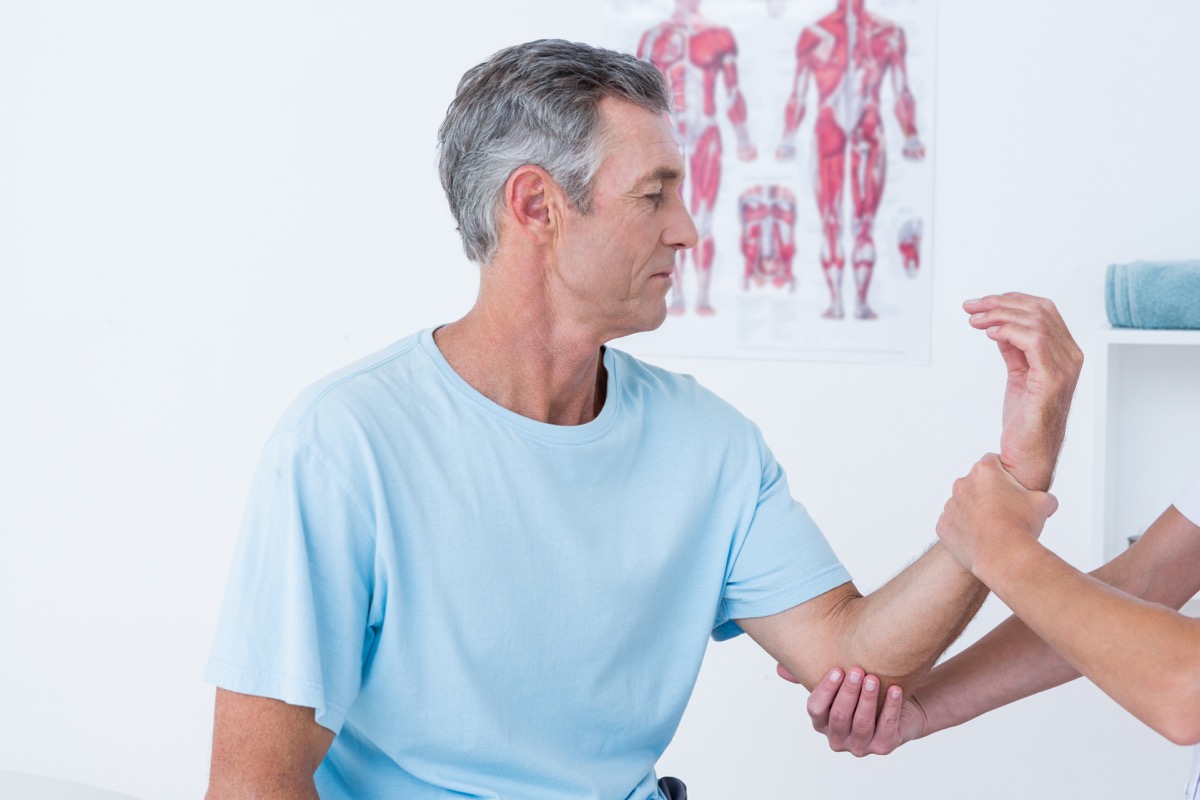
Over 30 and still feel like you’re in your prime? Your muscles may beg to differ. One 2013 study published in Muscles, Ligaments, and Tendons Journal found that after 30, participants saw a muscle decrease between 16.6 and 40 percent. And that muscular degeneration increased even more rapidly after 40.
The takeaway? No matter how incredible you feel, you’ll want to ramp up your strength training and protein intake in your 30s to help compensate for the strength you would otherwise lose with age.
19
Heart disease is more deadly than all types of cancer combined.

Cancer strikes fear into the hearts of many, but according to Dr. Nicole Weinberg, cardiologist at Providence Saint John’s Health Center in Santa Monica, California, our hearts themselves pose a bigger threat. Cardiovascular disease causes more deaths than all types of cancer combined, accounting for one in every four deaths in America and every one in three among women.
But the good news is that we know more about preventing heart disease than we do about preventing cancer, and eating well and working out can get you on the right track. Weinberg warns that this is only half the battle, and you should also see a doctor to assess how your particular genetic markers may affect your cholesterol levels.
20
And you can help fight dementia by preventing heart disease, too.

Need more reasons to get heart-healthy? Heart disease risk factors are also linked to dementia, according to the National Institutes of Health. The body relies on the vascular system to deliver blood and oxygen to the brain, and the better your heart is able to do its job, the less likely you are to suffer from dementia and Alzheimer’s disease.
21
Staying fit over time can make you 60 percent less likely to die early.

A 2012 study in the journal ISRN Cardiology tracked the link between physical fitness and mortality, and found that men who were consistently categorized as “fit” throughout their adult years had a reduced mortality of 60 percent. If you’re already in great shape, that should help motivate you to keep up the good work!
22
And getting in shape for the first time can make you 35 percent less likely to die early.
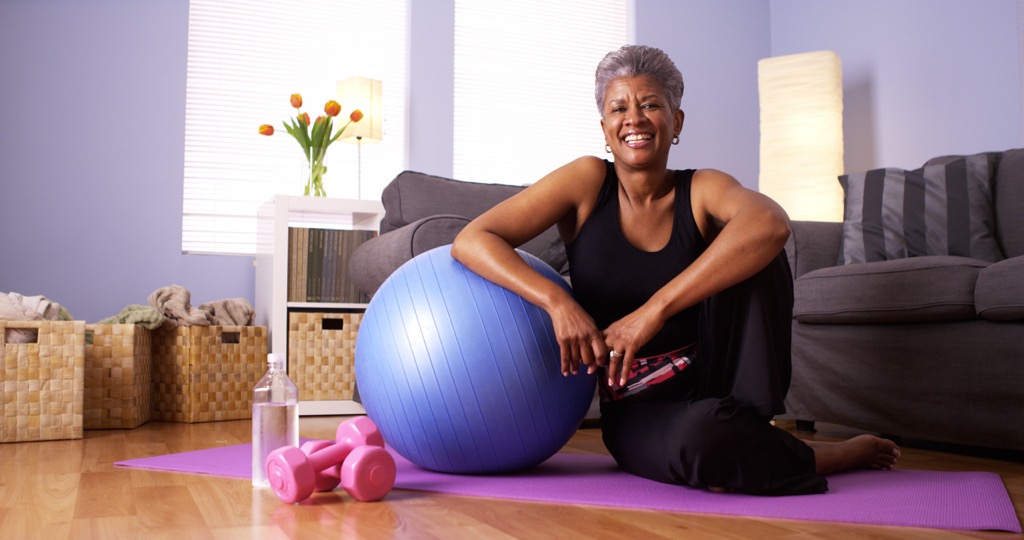
That same study in ISRN Cardiology found that study participants who were considered out of shape but improved their fitness over the five-year study period still had 35 percent reduced mortality. That’s proof that it’s never too late to start!
23
Your poor sleep habits can make you gain weight.
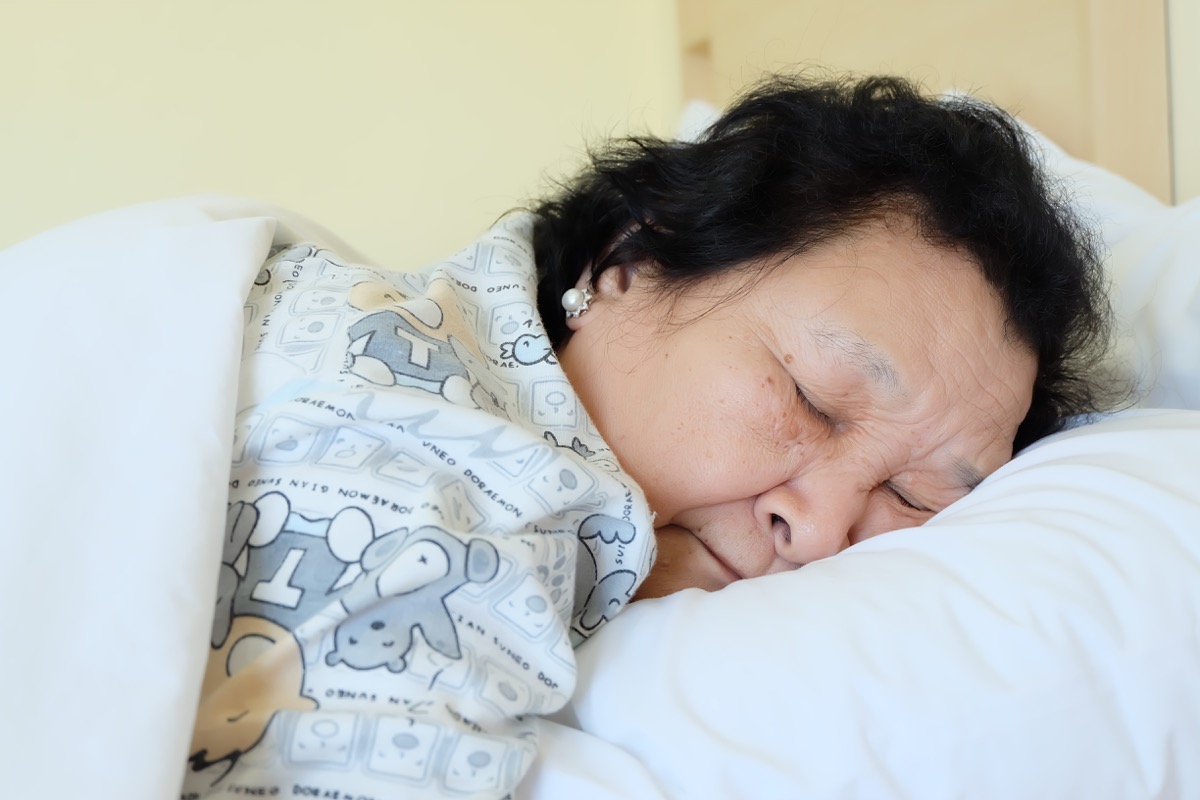
Like eating well, staying hydrated, and keeping active, getting a good night’s sleep should be at the top of your fitness checklist. A 2010 study published in the journal Environmental Health Perspectives found that not getting enough sleep, or maintaining an abnormal sleep schedule, is considered an independent risk factor for weight gain. This contributes to a cycle in which poor sleep practices lead to weight gain, which increases the likelihood of sleep apnea or other sleep disturbances, which, in turn, contributes to more weight gain.
24
Firm mattresses can wreak havoc on your back.

If you thought a firm matress was the key to improving your back, you might want to bring it up to your doctor. “Back pain sufferers can actually experience greater pain if their mattress is too firm because it puts more pressure on heavy points like the hips and shoulders,” says Anand. “Conversely, a mattress that is too soft could lack the support necessary to allow proper movement. In both cases, the person wakes up stiff and in pain.” The ideal mattress, medium-firm, involves a bit of a compromise between the two.
25
Mattress covers don’t help allergies.

If you find yourself suffering from dust mite-related allergies, your bed might not be doing you any favors. And unfortunately, it may not make a difference whether you use a mattress cover or not. A study in The New England Journal of Medicine found that there was little difference in exposure to mattress dust between groups that used allergen-impermeable covers and groups that didn’t.
26
Excessive sitting is more likely to cause inflammation in women.

“Inflammation is a reaction in the body that creates redness, swelling, heat, and can cause pain,” says Dr. Kristine Arthur, internist at MemorialCare Orange Coast Medical Center in Fountain Valley, California. “It is usually a response to something like an infection, chronic irritation, or an injury. Studies have shown that sitting longer is associated with an increased level in these inflammatory biomarkers, particularly for women.” Because chronic inflammation can lead to a weakened immune system, women should be sure to stay active throughout the day.
27
And standing up more often can save your life.

According to Harvard Health, more than half of the average person’s day is spent sitting, whether in front of a computer at work, in front of the TV at home, or with a meal at the table. Unfortunately this trend is hazardous to our health, contributing to increased risk of type 2 diabetes, cancer, and obesity, which in turn ups your chances of heart disease and stroke. However, there’s good news, too: A 2011 study in the Journal of Women’s Health showed that walking for just 30 minutes per day can help reverse some of these issues.
28
In fact, you burn 72 extra calories per day by standing at work.

With increased awareness of how dangerous a sedentary lifestyle can be for our health, more and more people have chosen to take on the workday standing up. And though the benefits go beyond weight loss (hello, lowered cancer and diabetes rates) it’s natural to wonder just how many calories you might burn by skipping the seat. The answer, according to the European Journal of Preventive Cardiology, is 72 calories in an eight-hour workday. In other words, it’s great for other aspects of your health, but don’t use it as an excuse to skip the gym.
29
Exercise is better for mild depression than medication.

While sufferers of more severe depression may benefit from antidepressant medication, a 2007 study in the Journal of Psychiatry and Neuroscience found that people who suffer from mild depression could be better off exercising. As the study explains, “the risk-benefit ratio is poor for antidepressant use in patients with mild depression.”
30
Our brains shrink with age, but we can help slow the process.

According to Dr. Vernon Williams, a sports neurologist and director of the Center for Sports Neurology and Pain Medicine at Cedars-Sinai Kerlan-Jobe Institute in Los Angeles, our brains shrink as we get older. Past our 60s and 70s, the loss of neurons and their connections—known as cerebral atrophy—is largely inevitable, and leads to cognitive decline. However, healthy habits including not smoking, managing blood pressure, and maintaining a healthy weight can help slow down the process.
31
Eating more fruit will improve your liver health.

An apple a day keeps the doctor away—or at least it can help keep your liver at its healthiest. A 2017 study in the journal Nutrients revealed that eating more fruit fiber contributed to a healthier liver, especially in overweight and obese people who suffered liver damage, including fatty liver disease.
32
Food can boost your mood.

A 2017 report in the journal Microbial Ecology in Health and Disease set out to identify compounds in different food groups that help elevate peoples’ moods. Looking at carbohydrates, proteins, and fats, the report identified beta-glucans, tryptophan, and Omega-3 fatty acids as the best mood-boosters. Translation? Foods like oatmeal, spinach, eggs, nuts, and salmon should be regular features in your meal plan.
33
Most Americans’ diets are failing them.

As Americans, it’s time for us all to take a good, hard look at the foods we eat. According to the U.S. Department of Health and Human Services, the average American consumes a diet that exceeds the recommended intake levels in four key categories: calories from solid fats and added sugars, refined grains, sodium, and saturated fat. Not sure if your diet is on the right track? Check out this helpful guide from the USDA.
34
90 percent of Americans consume too much sodium.
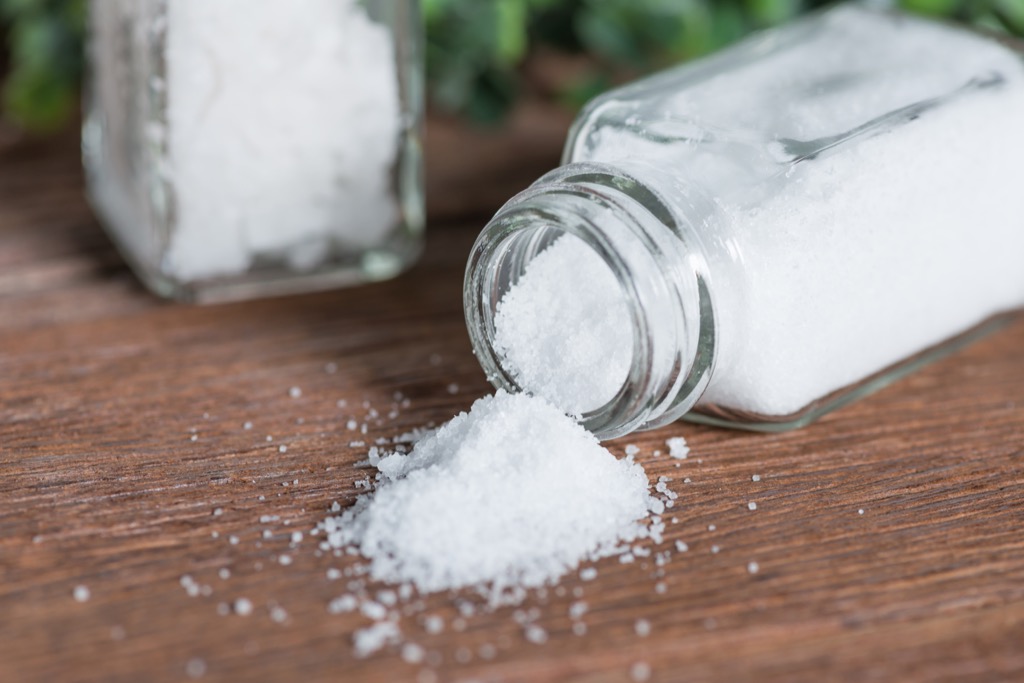
If there’s one area where most American diets go off the rails, it’s sodium. In fact, according to that same report, about 90 percent of Americans eat more salt than they should, consuming an average of 3,400 mg per day, compared with the recommended guideline of less than 2,300 mg per day. Sodium takes a major toll on our health, raising our blood pressure and contributing to heart disease. It is estimated that if Americans reduced their sodium intake by 1,200 mg per day, it could save up to $20 billion a year in medical costs.
35
Up to 70 percent of middle-aged women have a thyroid problem.

According to Dr. Melanie Goldfarb, endocrine surgeon and director of the Endocrine Tumor Program at Providence Saint John’s Health Center, up to 70 percent of middle-aged women and 40 to 50 percent of middle-aged men suffer from thyroid nodules—whether they know it or not. These are small, often symptomless growths that develop on the thyroid and in some cases cause hypothyroidism. Between 5 and 10 percent of cases are determined to be cancerous, so be sure to schedule an ultrasound if you suspect a problem.
36
One in six people have a pituitary tumor or cyst.
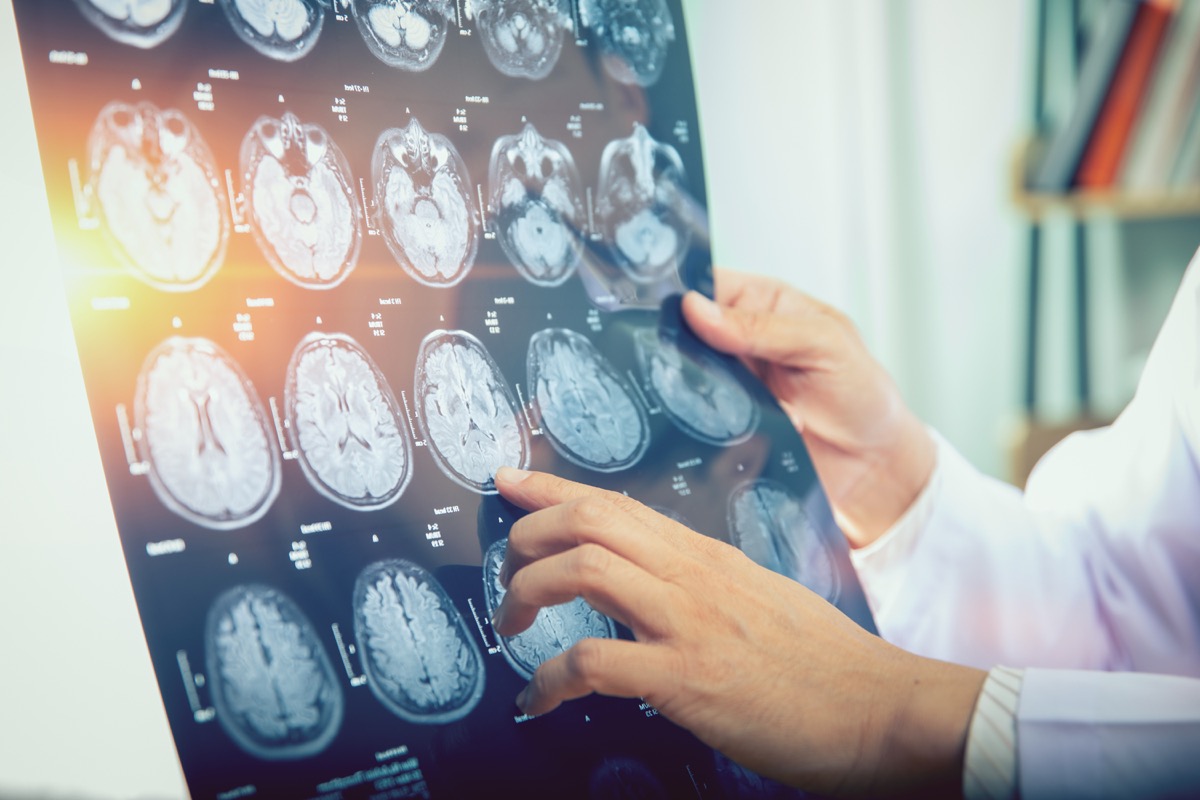
Only the size of a pea, your pituitary gland packs a big punch. Situated at the base of your brain, this “master gland” controls other hormone-secreting glands, and has a huge impact on the regulation of your vital organs. So it may come as a bit of a shock that according to Goldfarb, one in six people has a pituitary tumor or cyst. The good news? “You can remove up to 95 percent [of the gland] and still have complete function,” says the endocrinologist.
37
Deep breathing may help you lose weight.

According to the Mayo Clinic, fat leaves the body mostly via exhaled breath. A 2014 study in the journal Gastrointestinal Tracts found that 84 percent of fat is transformed into carbon dioxide and breathed out, while the remaining 16 percent becomes water, leaving your body through urine and sweat. Some fitness professionals argue that this means that deep breathing with attention to prolonged exhalation can help your body shed fat.
38
Sweating does not help you lose fat.

If you’ve been going on runs wearing sweat suits or garbage bags, it’s time to change your routine. Beyond the risks associated with intentionally raising your temperature while exercising, extreme sweating does very little to help you lose fat. As you exercise, your metabolic system oxidizes triglycerides into usable energy for your muscles, shrinking (though not getting rid of) your fat cells in the process. The 16 percent of weight that is lost through urine and sweat is quickly replenished as soon as you rehydrate.
39
Staying hydrated boosts your metabolism.

Need more of a reason to drink your recommended eight glasses of water a day? Several studies, including this 2016 report in the journal Frontiers in Nutrition, have concluded that staying adequately hydrated helps people lose weight, both by curbing appetite and increased lipolysis, or the breakdown of fats. Go ahead and top off your glass!
40
Restricting calories increases stress.
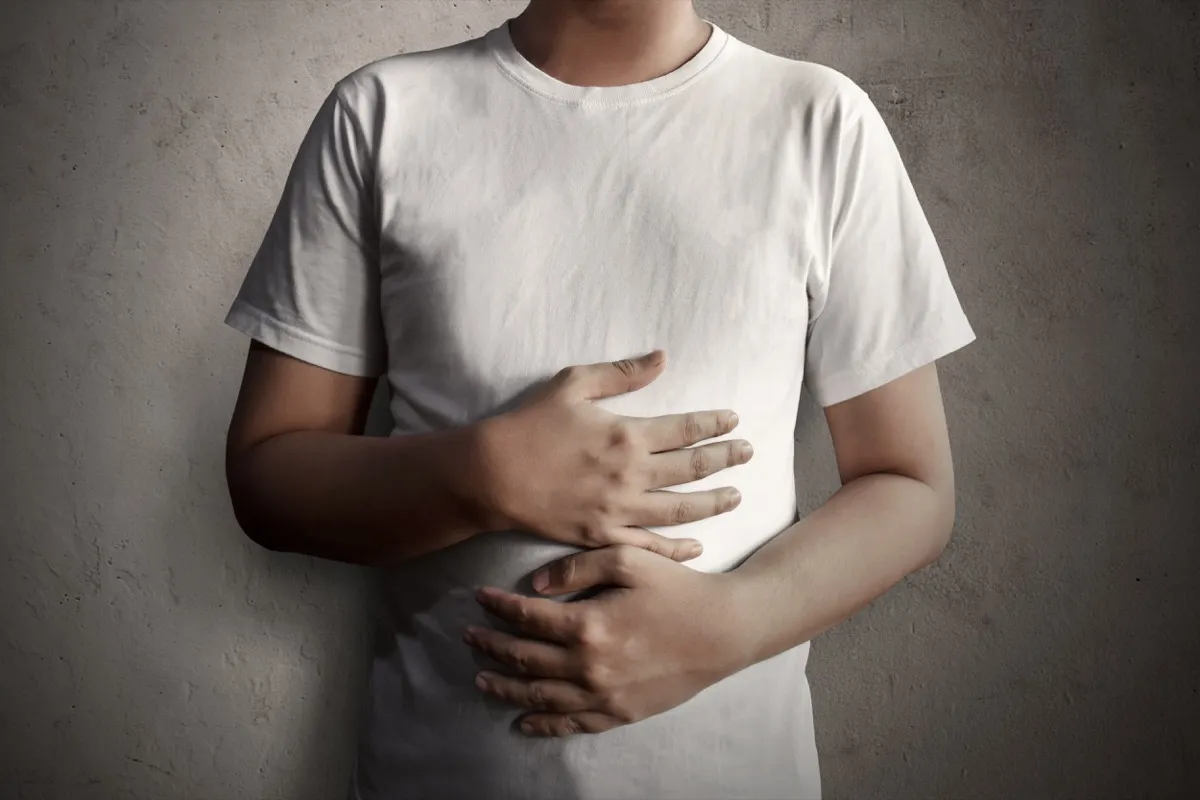
This may come as no surprise to anyone who’s taken on a tough diet before: Calorie-restrictive diets increase stress. As one 2011 study in the journal Psychosomatic Medicine explains, “Restricting calories increased the total output of cortisol, and monitoring calories increased perceived stress.” To feel your best, physically and emotionally, forgo calorie-counting and instead focus on eating nutritionally-sound foods in reasonable portions.
41
…And stress makes you store more fat.

Not only does stress take a toll on other areas of your life, but it also directly leads to more weight gain. That same Psychosomatic Medicine study found that elevated cortisol levels trigger food cravings and the storage of excess fat, particularly around the abdominal area.
42
Your menstrual cycle should influence your diet.
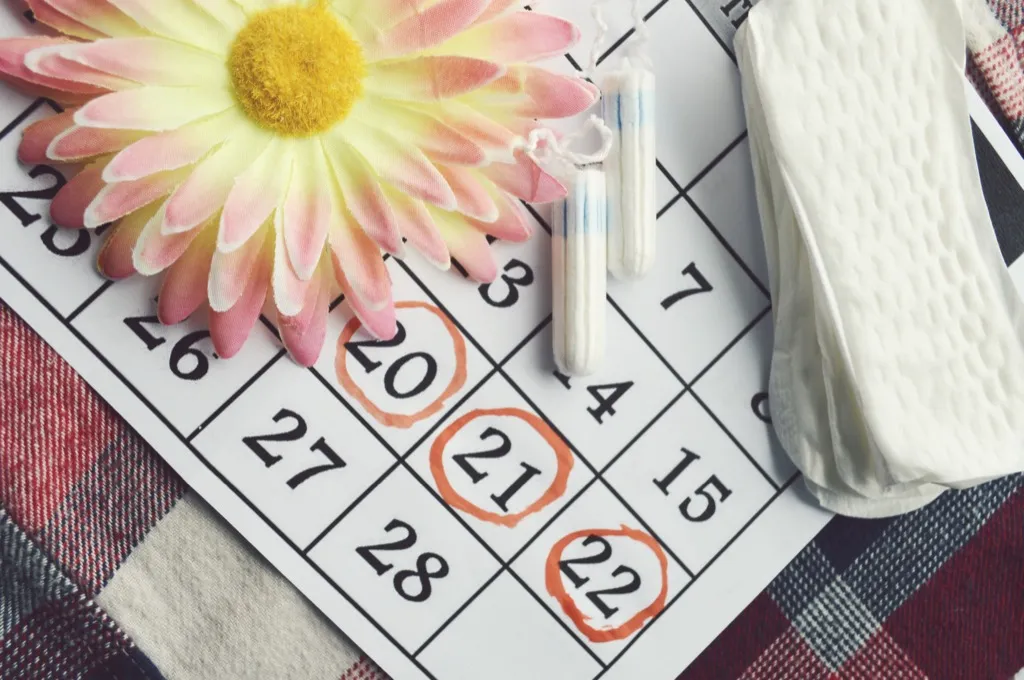
It’s normal for women to feel heavier or lighter depending on where they are in their menstrual cycle. But the American Journal of Clinical Nutrition suggests that the connection may go deeper than water retention and bloating: The study found that women are more successful in weight loss when they use “a differentiated diet and exercise program that is tailored to counteract food cravings and metabolic changes throughout the menstrual cycle.”
43
Boosting your testosterone lowers your risk of heart attack.

According to Dr. S. Adam Ramin, urologist and medical director of Urology Cancer Specialists in Los Angeles, testosterone is essential in building muscle mass, preventing loss of bone density, boosting sexual desire, fighting fatigue, and maintaining psychological health. But he also notes another key benefit: Good cardiovascular health and lowered risk of heart attack.
44
And you can boost your testosterone naturally.

Ramin explains that both men and women suffer from low testosterone as they age, and while testosterone supplements can cause unwanted side effects, there are many natural ways to boost your levels, consequence-free. He recommends regular exercise, losing belly fat (which “converts naturally-occurring testosterone into estrogen”), getting enough sleep, avoiding stress, and keeping a nutritious diet that includes “healthy cholesterol,” found in foods like eggs, avocados, and fish.
45
Parents who exercise have more active children.

If you have kids, your health habits are contagious. A 2014 study in the Journal of Sports Science & Medicine revealed that a child’s rate of participation in sports was significantly predicted by their parents’ rate of physical activity, particularly as younger adolescents. Notably, sons were only impacted by their father’s level of activity, whereas daughters were impacted by both their mothers and fathers.
46
”Text-neck” is an epidemic

By now you’ve likely heard of “text-neck,” a strain of the cervical spine caused by constantly angling our heads downward to look at our phones and other devices.
“The head placed at a 60-degree angle forces the cervical spine to hold the equivalent of 60 pounds,” Anand explains. “To put those numbers into perspective, the design of your neck is such that it is strong enough to carry your skull (which weighs about 12 pounds). In effect, these torqued angles we’re placing our necks at are putting up to five times the amount of pressure on them than they were designed to hold.” If you’re feeling the strain, it’s time to scale back on devices, and practice better posture.
47
Your choice of friends can be bad for your health.

According to Dr. Peter LePort, bariatric surgeon and medical director of MemorialCare Surgical Weight Loss Center at Orange Coast Medical Center in California, who you consider a friend can have a huge impact on the success of your health or weight loss plans. “When you tell them [about your health goals], you may find that your loved ones are all very supportive, initially. And, like most things in life, some will be more supportive than others,” he explains. “The tension usually arises when you begin to choose healthy activities over the unhealthy ones you may have previously engaged in with them.” LePort recommends including your friends in your new healthy lifestyle, and releasing relationships where your friends’ unhealthy habits may be holding you back.
48
Between 10 and 20 percent of health problems are misdiagnosed.

The faith we put in medical professionals is profound, and many of us take our doctor’s word as gospel, but it’s important to remember that medicine is complex, and people make mistakes. In fact, according to one 2013 study in the journal BMJ Quality & Safety, “Autopsy studies identify major diagnostic discrepancies in 10 to 20 percent of cases.” The study goes on to explain that in a survey of more than 2,000 patients, 55 percent listed a diagnostic error as their primary concern when seeing a physician, and physician surveys have found that roughly half of responding doctors encounter diagnostic errors every month.
49
Gut bacteria is the new frontier in health.
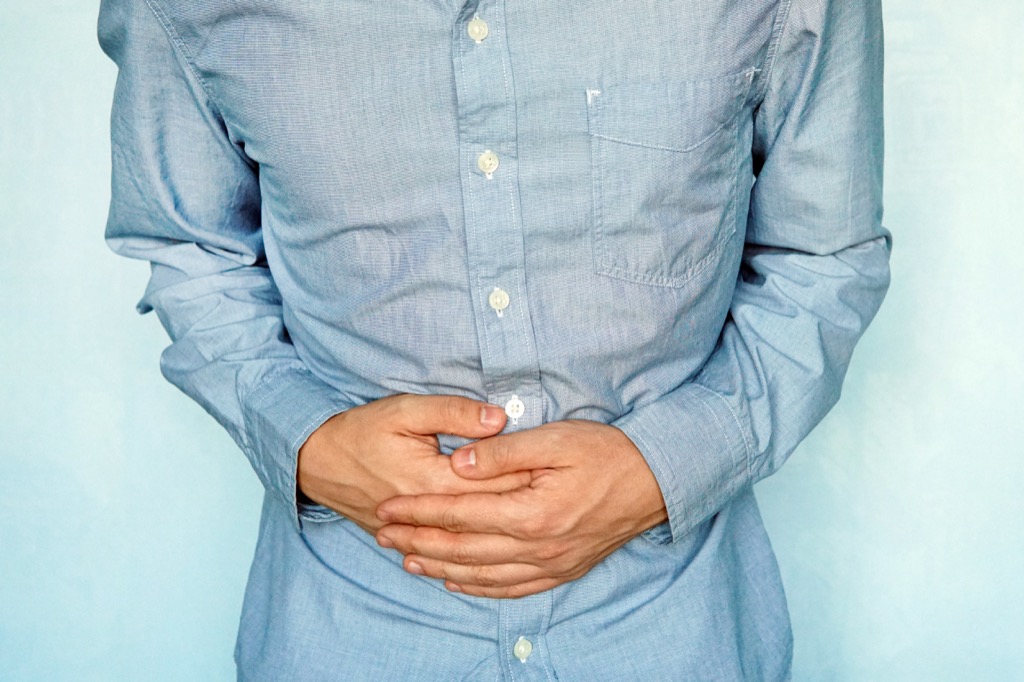
Gut bacteria may be the new kid in town when it comes to health, but mounting research now suggests that it could change the way we look at wellness. A 2013 report in the journal Gastroenterology and Hepatology refers to the study of gut ecology as “one of the most active and exciting fields in biology and medicine.” Researchers are making huge strides in understanding how microbiota can influence everything from disease prevention to weight management. Stay tuned to advancements in probiotics: These could very soon be the key to good health.
50
Bathroom doors spread more disease than toilet flush handles.
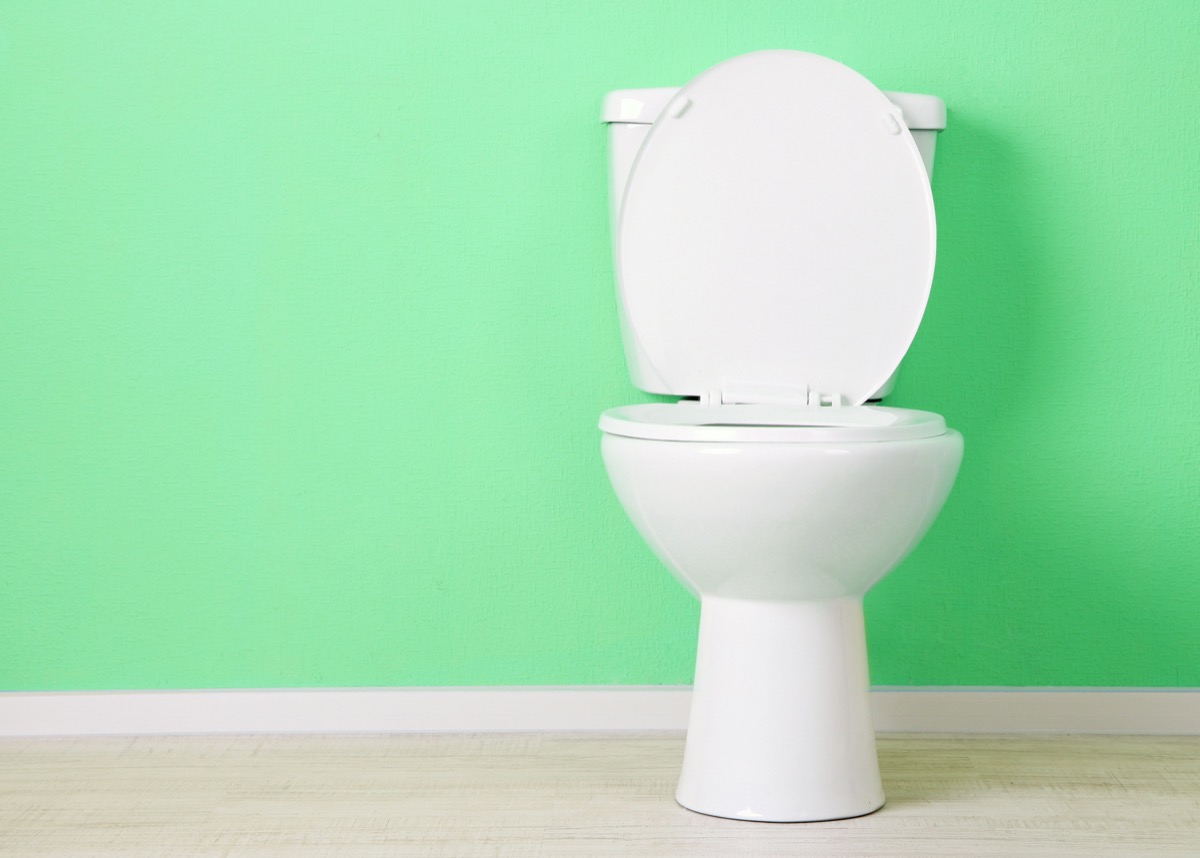
If there’s one place that we can all agree is a hotbed for the spread of germs, it’s public bathrooms—and many of us are selective about what we will and won’t touch when we’re in one. The problem is that we’ve been getting it all wrong: A 2011 study in the journal PLOS One found that if after washing your hands, you use them to open the door, you have a higher risk of contamination than if you flush the toilet with your bare fingers. Another shocker from the study? The toilet floor often has fewer germs than the soap dispenser! And to make sure you get this daily activity right, This Is the Safest Way to Wash Your Hands.
To discover more amazing secrets about living your best life, click here to follow us on Instagram!